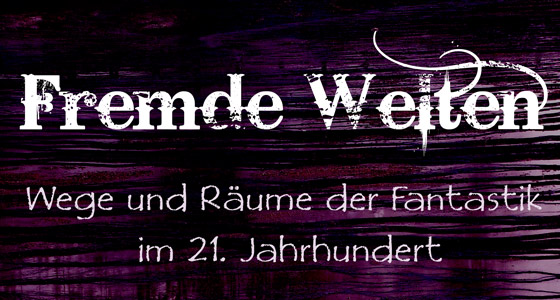Review: Fremde Welten Conference, October 2010
Fremde Welten – Wege und Räume der Fantastik im 21. Jahrhundert
Strange Worlds – Paths and Spaces of the Fantastic in the 21st Century
October 1st of 2010 marks the beginning of a new era for the European fantastic as the German-based Gesellschaft für Fantastikforschung e.V. (GFF) (Association for Research on the Fantastic) inaugurated itself at its first annual conference at the University of Hamburg. The four-day event from Sep 30th to Oct 3rd offered its participants more than one hundred and thirty talks in four different strands, both in English and in German, discussing key issues of the fantastic in Europe and especially in European academia.
As the opening discussion made explicit, research on the fantastic in Europe (and especially Germany) has long been marginalized and held in low esteem at Universities, a problem for academics of the field that is slowly beginning to change and that the GFF has set out to rectify. As the organizers of the conference pointed out, the new organization understands itself as a ‘base camp’ from which to start adventurous journeys into the ‘strange worlds’ of the fantastic. The GFF is supposed to provide materials, tools and networks so that academic endeavors in this field might be productive and successful.
The first step towards establishing this association has been the inauguration meeting at which more than eighty scholars founded the GFF, elected a board of representatives and announced the future publication of both a bilingual monograph series as well as an academic peer-reviewed journal in German, in order to facilitate German-language scholars with an outlet for their work and a possible platform for the translation of key articles into German. In June the IAFA, in a generous welcome, had at their board meeting announced the GFF to be the very first “allied organization” and both sides are now looking forward to working together on common goals. More information on the GFF, its officers and the publications, as well as the now annually organized GFF conferences can be found at www.fantastikforschung.de.
The first conference “Fremde Welten” offered insights into the current state of research on the fantastic, highlighting key issues of European scholarship, such as the discussion of theoreticcal approaches towards the fantastic, be they structural and post-Todorovian or be they grounded in liminality studies. Another key issue has been the changing political and social landscape of Europe after the fall of the Berlin wall and the cultural implications this has brought – a topic which the second GFF conference in Salzburg next year will emphasize on.
On Friday evening keynote speaker Dr. Brian Stableford warmly welcomed the newly founded GFF into the academic-fantastic community with his talk on “The Art and Science of Heterocosmic Creativity”, retracing the origins and developments of the fantastic genres. On Saturday evening the honor of a creative follow-up fell to author Paul Di Filippo who had prepared a story, “Pocketful of Faces”, especially for the conference, reflecting on the themes and currents represented. On Sunday, then, the conference closed with a discussion of several key German authors of the fantastic. The authors, such as Bernhard Hennen or Christoph Hardebusch, argued for a need of recognition among journalists but also among academics that German fantastic literature has developed a strong position with fans, which should be reflected in discourse on the fantastic. The GFF will function as a meeting-ground for both authors and academics to work together and both groups might in reciprocal movements be able to overcome the “low brow” stigma that still lingers in Europe, very dissimilar to the US, where the discussion has been laid to rest years ago.
Originally published in the Journal of the Fantastic in the Arts
Citation: Schmeink, Lars. “Fremde Welten Conference.” Journal of the Fantastic in the Arts (JFA) 21.3 (2010): 503.
